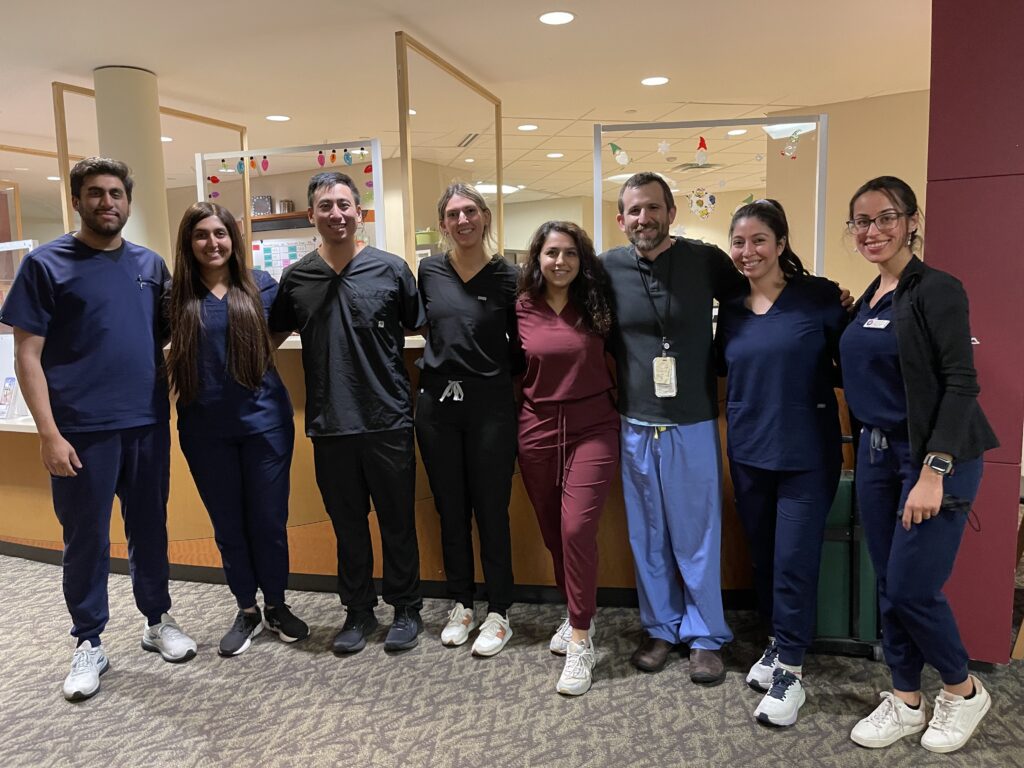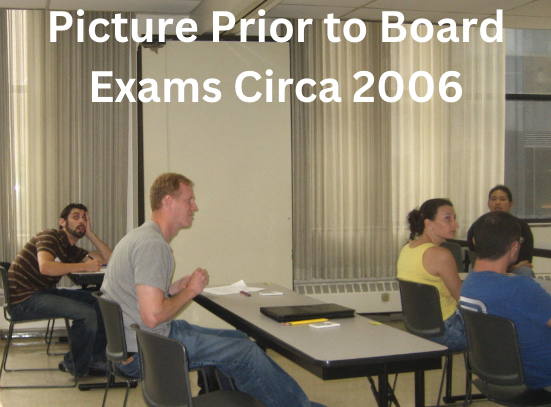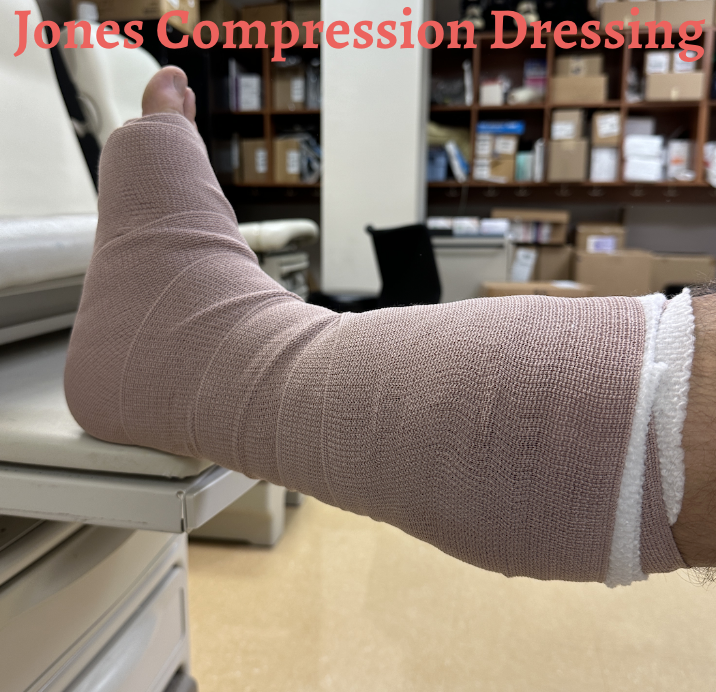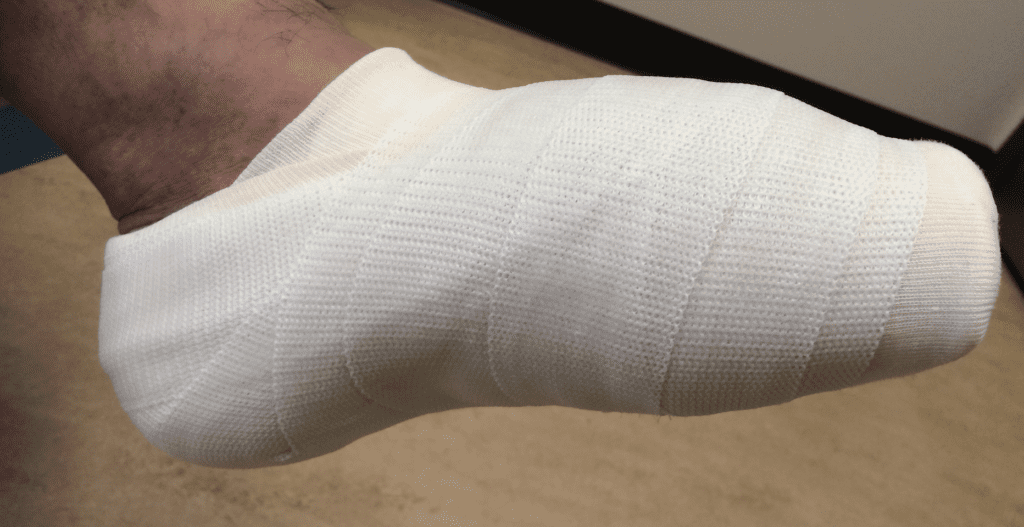Authored by Leland Jaffe DPM, FACFAS; Associate Dean and Professor; Published on May 16th, 2024
Beginning podiatric medical school can be both exciting and daunting. As you step into this new chapter of your academic and professional life, it’s natural to feel a mix of excitement and nervousness. The first year sets the foundation for your entire podiatric medical school career, so it’s crucial to approach it with intention and determination. Here are some valuable tips to help you thrive during your first year of podiatric medical school!
1. Establish a Strong Support System:


One of the most important things you can do is surround yourself with peers who share your passion for education and understand the demands of medical school. Forming study groups and participating in extracurricular activities related to podiatric medicine can foster camaraderie and provide invaluable support during your medical education. Some of my friends that I made during podiatric medical school, are still some of my best friends! Med school is hard enough, why not navigate it with a group of close friends to lean on? This group to lean on is great for your mental health and to thrive during your first year of medical school.
2. (Attempt) To Stay Organized :
With a demanding curriculum and rigorous schedule, it’s a good habit to stay organized to help manage your workload more effectively. Invest in a planner or digital calendar to keep track of assignments, exams, and clinical rotations. Break down larger tasks into smaller, manageable steps to avoid feeling overwhelmed. I’m personally a fan of using Google Calendar and the “Stickies” app on my MacBook desktop.
3. Prioritize Self-Care:
Medical school can be mentally and physically taxing, so prioritizing self-care is essential for maintaining your well-being. Make time for regular exercise, nutritious meals, adequate sleep, and relaxation activities. Remember, taking care of yourself is not a luxury but one of the necessary steps for academic success.
4. Seek Mentorship During Podiatric Medical School:
Find mentors within the podiatric community who can offer guidance, advice, and insights based on their own experiences. Whether it’s a faculty member, practicing podiatrist, or upperclassman, having a mentor can provide invaluable support and help you navigate the challenges as a med student.
5. Stay Engaged in Your Studies:
Podiatric medical school requires dedication and a strong work ethic. Stay engaged in your studies by actively participating in lectures, labs, and clinical experiences. Take advantage of resources such as academic support services at your institution to enhance your learning. Remember that asking for help is a sign of strength, not a sign of weakness.
6. Embrace Growth Mindset:
Approach challenges with a growth mindset, viewing them as opportunities for learning and growth rather than setbacks. Stay resilient in the face of adversity, and don’t be afraid to seek help when needed. Remember that setbacks are temporary, and with perseverance, you can overcome them. I can only speak for myself, but my pathway to achieving goals has rarely been linear, and being able to learn from setbacks and mistakes is part of the growing process.


7. Get Involved in Extracurricular Activities:
Engage in extracurricular activities that align with your interests and goals within podiatric medicine. Whether it’s volunteering at a free clinic, conducting research, or participating in professional organizations, involvement outside of the classroom can enrich your educational experience and broaden your perspective. Your future self with also appreciate the fact that you can showcase these activities during your residency application process, compared to just your academic achievements.
8. Stay Connected with Your Passion for Podiatric Medicine:
Remind yourself regularly why you chose to pursue podiatric medicine. Whether it’s a personal experience, a desire to help others, or a fascination with the complexities of the foot and ankle, staying connected with your passion will fuel your motivation and drive you forward during challenging times. During the intense amount of study time, it’s easy to lose focus on your goals. Once again, if you’re feeling lost or frustrated, speak to your mentors, upperclassmen, or your group of friends that you can confide in.
9. Practice Work-Life Balance:
Strive for a healthy balance between your academic responsibilities and personal life. While medical school requires dedication and hard work, it’s important to carve out time for hobbies, socializing, and relaxation. Finding balance will help prevent burnout and contribute to your overall happiness and success. This is also a good skill to carry with you once you are a medical professional.
10. Celebrate Milestones Throughout Medical School:
Take time to celebrate your accomplishments and milestones along the way. Whether it’s performing well on an exam, completing a challenging rotation, or receiving positive feedback from a preceptor, acknowledging your achievements reinforces your progress and boosts your confidence.
The Second Year of Podiatric Medical School
The second year of medical school often feels more manageable once students become acclimated to the rigorous demands of the curriculum. Initially, daunting concepts and vast amounts of material gradually become more familiar, allowing for a smoother transition into deeper understanding and application. With foundational knowledge established during the first year, students typically find themselves better equipped to navigate the complexities of organ systems, pathology, and clinical correlations.
Study strategies become more refined, time management improves, and the ability to prioritize information becomes second nature. Additionally, the supportive network of peers and faculty, along with access to valuable resources, aids in overcoming challenges and fosters a sense of confidence in one’s abilities. While the workload remains substantial, the second year often feels more manageable and even rewarding as students witness their growth and progress in their journey toward becoming proficient physicians.
Tips To Thrive During Your First Year of Podiatric Medical School – Conclusion
As you begin your first year of podiatric medical school, remember that you are starting on an incredible journey that will shape your future career as a podiatric physician. By staying organized, prioritizing self-care, seeking mentorship, and staying connected with your passion for serving others, you can navigate the challenges of medical school with resilience and thrive both academically and personally. Trust in your abilities, stay committed to your goals, and embrace the opportunities for growth and learning that lie ahead. Remember that the days are long, but the months and years are short – 4 years of podiatric medical school will fly by. Enjoy the ride!
Please consider subscribing to this website to join our community and receive access to FREE daily quizzes and downloadable cheat sheets!







